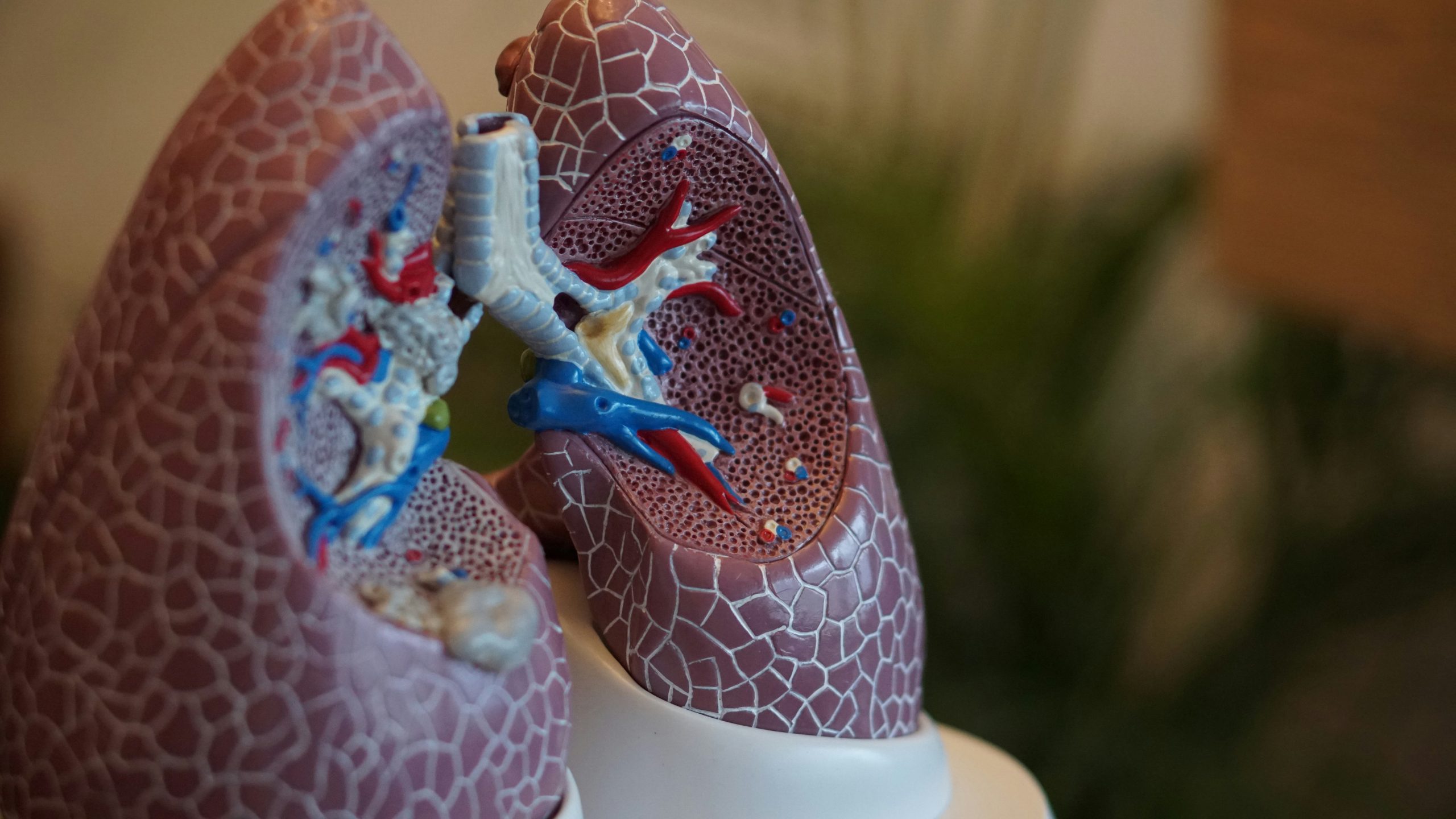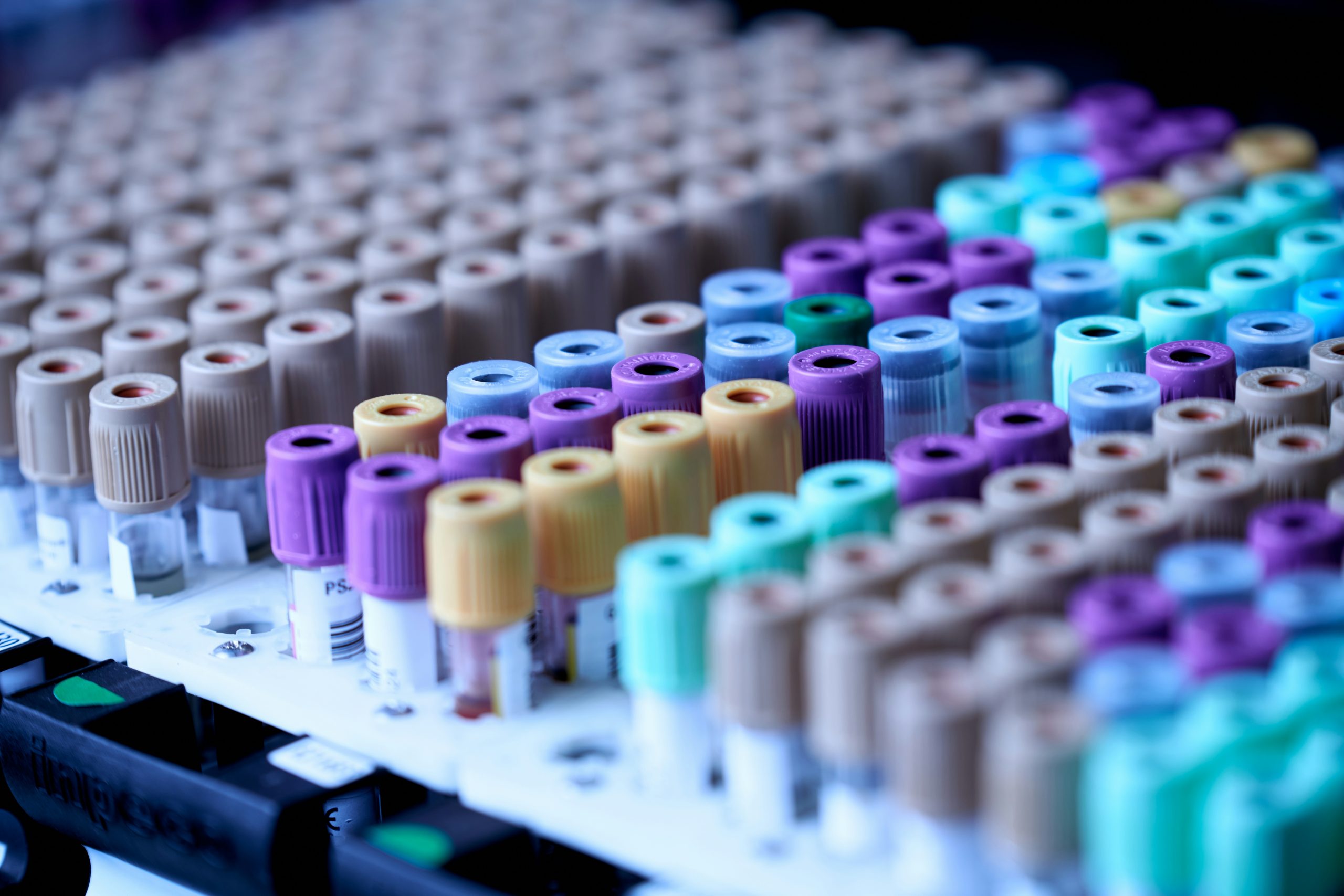NHS Trials New Blood Test for Lung Cancer Patients

The NHS is trialling an innovative new blood test, which could help thousands of lung cancer patients receive earlier, more targeted treatments.
By next March, 10,000 patients will be offered the circulating tumour DNA (ctDNA test), which identifies genetic variants in a tumour through blood samples.
Current practice when it comes to confirming lung cancer diagnoses involves tissue biopsies, where samples are sent for genomic testing.
The ctDNA blood test can be administered on patients whose CT scan results show suspected lung cancer.
According to the NHS, cancerous tumours often release pieces of DNA into the bloodstream, known as circulating tumour DNA.
These can be then sampled using a ctDNA blood test to identify key genetic drivers of tumours.
It is hoped that this new test, which is being managed through the NHS Genomic Medicine Service, will provide patients with results faster, meaning they are able to start targeted treatment sooner.
The roll out of this pilot, which could encompass most trusts across England, comes after an initial trial involving 2000 patients from 80 trusts around the country.
Peter Johnson, National Clinical Director for Cancer at NHS England, said: “This new blood test that we have been piloting has the potential to help many more cancer patients access targeted treatments more rapidly on the NHS, to make personalised treatments available sooner, and ensure that people with cancer have the best possible chance of survival.
The NHS has shown it can lead the way on innovation in cancer diagnosis and treatment, and this pilot is another example of our commitment to getting patients cutting-edge treatments and therapies to improve outcomes, giving people facing lung cancer more precious time with loved ones.
Lung cancer is one of the most common cancers in the UK
Around 34,000 people are diagnosed with lung cancer every year in England, with non-small-cell lung cancer being the most common, accounting for up to 85% of cases.
Kat Robinson, 33, was diagnosed with stage 4 non-small cell lung cancer in September last year, and took part in the ctDNA pilot at Poole Hospital.
Clinicians were able to confirm that her cancer was being driven by two genetic mutations known as ALK fusion and TP53, enabling them to provide brigatinib, a precision treatment that is highly effective against cancer with changes in the ALK gene.
She commented: “When I first heard my diagnosis, I spent a lot of time trying to understand if I did it to myself. Having the ctDNA test results back gave me a sense of relief that there was no one to blame, I couldn’t be angry about it.
“The tablets help me keep my cancer in check, they are allowing me to carry on with my day-to-day life. I can do things with my family – I can be a mum to my daughter”.
Now, it is hoped that the new test will go on to help more cancer patients receive timely treatment.
Guardiant Health, who alongside Roche carried out the earlier testing and developed liquid biopsy technology, have now teamed up with The Royal Marsden NHS Foundation Trust to work on the so-called Marsden360 service.
Professor Sanjay Popat, co-clinical lead of the ctDNA pilot and a Consultant Medical Oncologist at The Royal Marsden NHS Foundation Trust, said: “CtDNA liquid biopsies have the potential to transform cancer care for patients, from earlier diagnosis to prognosis and better management of treatments.
“It is fantastic that through collaborating with NHS England we can look to bring cutting-edge genomic testing to patients in the NHS, resulting in many patients receiving targeted treatments rather than standard chemotherapy.
“Our Marsden360 service, established in partnership with Guardant Health, also allows us to significantly increase our capacity for research using ctDNA testing, improving treatment options for patients across the UK”.

